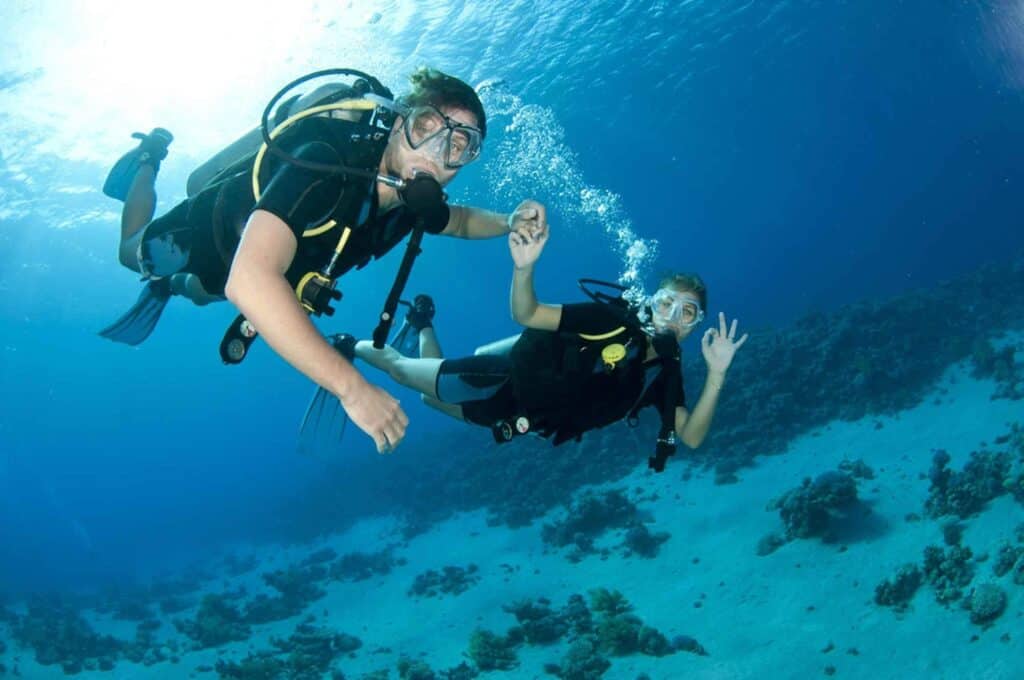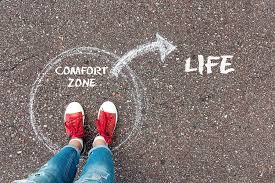50% of all divers have experienced some sort of fear or panic during a dive. Fear is so common that it effects beginners as well as experienced divers. No one is immune to fear or anxiety but it’s not always discussed.
Fear is a common emotion that is often felt by scuba divers at various points in their experience levels. The main reason for feeling this way is a fear of drowning or running out of air. Both of these scenarios are highly unlikely but that doesn’t stop our brains from attempting to convince us otherwise.
It doesn’t matter if you are a beginner or have over 100 dives logged, fear, anxiety, and panic can spiral out of control if left unaddressed. There are several steps to take to regain control and enjoy your dive.
What to do if you feel afraid?
1.) Stay Calm
It is very important to remain calm if panic begins to creep in. Easier said than done, yes. However, panic can lead to serious emergencies that can quickly spiral out of control.
Instead of allowing your mind to drift into fear-based thinking take control. Try to instead focus on your breathing and reassure yourself that you are safe.
Draw slow stead inhale breaths to the count of four and slowly exhale to the count of four. Repeat this for several minutes until you feel yourself relaxing. It might sound simple but it actually works.
Acknowledge your fear and think about why it is occurring. Do you feel undereducated, lack confidence, been away for a while, generally nervous? Remind yourself that you are trained, certified, and have experience. You have done this before without any problems and this dive is no different.
2.) Distraction Techniques
The wonderful thing about fear is that it usually passes within 10-15 minutes. As long as you remain as calm as possible and focus your attention on your breathing. If you find focused breathing isn’t enough then use other distraction techniques to divert your attention elsewhere.
Find an object relatively close to you. A coral reef, a spot in the sand, or even another diver. Describe them to yourself in short sentences. Notice colors, shapes, lengths, actions, and so forth. You might even make up a story about the object. You could think about where it lives, where it came from, where it’s going, what it ate for breakfast. Keep it simple and easy.
You can move your focus from object to object repeating small descriptive sentences about it and concocting stories. Honestly, your fear will subside so quickly that you wouldn’t even remember when it left. Then if at any moment you begin to feel that pang of fear, just find an object and describe it while slowly breathing in and out.

3.) Buddy Up
One aspect of fear during diving is that you are alone or that there is no way to verbalize your needs. If diving with a group or a buddy then get a little closer to someone you feel confident with.
Perhaps that’s the divermaster or someone who is far more experienced than yourself. Don’t overcrowd them but remain in their field of vision by swimming next to them or slightly ahead. This will make you feel safer and more supported.
Staying close to a dive buddy also offers some distraction from your fears and obsessive thoughts. You can play and joke around or work on skills like buoyancy or fish recognition.
If you feel better holding onto someone else for a short period then the divemaster will gladly assist you along with personal acquaintances. Swim over to that person and gesture that you feel a little afraid and ask to link arms for a short time.
Just a little advice for this though. Do not go and link arms with someone you just met in the dive group. They will probably act negatively or confused by the sudden interaction.
4.) End The Dive
There is absolutely no shame in ending a dive early because your panic has spiraled beyond your control. It’s far better to exit on your own then having to be rescued because of an emergency.
I was once on a live-aboard boat trip and dove several times a day for a week. On the last night, the group went together for a night dive. One woman who I had dove with at least 15 times went down for five minutes and ended her dive early.
When I got back into the boat and asked her what happened she said she panicked. I had seen her dive many times and she was always the last one back on the boat. However, on this dive, fear overwhelmed her and she decided not to finish the dive.
There was nothing to be ashamed of and it could very well be that she had little experience doing night dives. I find it to be the perfect lesson about fear. You can do something hundreds of times and then one day fear decides to take over and suddenly you forget how much experience you have. How successful you have been all the times before. It truly is a test of mental strength.
5.) Dive More Often
The more often you are in the water and diving the less likely you are to experience fear or anxiety. It’s common for experienced divers to panic on their first dive back after taking some time off.
PADI recommends taking a refresher course if you have not dived in 8-12 months. This is completely optional but it can help alleviate fears when starting back up.
The truth is that the more you dive the better you will become and the more confident you will feel. Certified divers should make it a point to dive several times a year and take refresher courses if needed.
Fear Factor
Fear and panic are valuable emotions. They help protect us and warn us of danger or potential harm. We can respectfully recognize fear and also reaffirm that we choose to proceed anyway.
Fear is a warning but it is not a deciding factor as to whether or not you should do something. Any new or unfamiliar activity will create an element of fear within you. Be brave and bold and go ahead in spite of these emotions.

